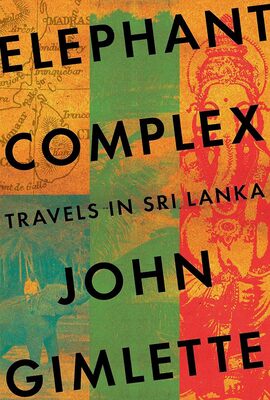
S. W. R. D. was also animated by the blandness of independence. In it, he saw an opportunity, the chance to become a champion, the father of something truly Sinhalese. The key to it would be language, and the revival of Sinhala. It was already a popular theme across the south. To a new generation of politicians, known as the “Chauvinists,” English was undignified; it was still the language of the courts and statutes and yet few people spoke it. It was also offensive, they said, to the island’s religion. Once, a third of the world was Buddhist, and now this was a last redoubt. The Sinhalese were a chosen people, and the defence of their language was a matter of faith.
A cricket pitch is twenty-two paces long, which is the same length as a meditation walk in the Buddhist tradition.
As the empire had grown, so had the demand for manpower, and soon criminals were being thrown in the mix. To be banished to the Eastern colonies was the worst punishment a man could suffer. It’s said that, as they rounded the Cape, they all threw their spoons overboard, knowing that, for the rest of their lives, they’d be eating with their fingers.
Word of the bark’s miraculous properties soon spread as far as China and Rome. Arab traders quickly discovered that, with a bit of mythology, they could charge more. Even Herodotus was persuaded that cinnamon sticks were daringly harvested from the nests of the phoenix.
Few places in Sri Lanka have such a high concentration of Roman Catholics. It’s said that the Portuguese found easy converts amongst the wretches fishing this coast. Under Buddhism, fishermen had always been reviled as killers, and were consigned to the most contemptible caste. They hadn’t even been allowed to participate in the temple ceremonies. And so when, in 1543, the Franciscans appeared, offering processions, pilgrimages, holy water, feasts, fasts and prayers for the dead, the fishermen were converted in numbers.
In 1902, the commander of the British forces in Ceylon, Sir Hector “Fighting Mac” MacDonald—hero of the Second Afghan War, the First Boer and Omdurman—was found cavorting in a railway carriage with four Sinhalese boys. As his biographer put it, “Ceylon furnished MacDonald with a lethal combination of a military command that was inactive and uninteresting, and a community of boys who were interesting and very active.” Although he survived the scandal in Colombo, back in Europe he was publicly shamed and, in a Paris hotel, he took up a pistol and blew out his brains. In the long history of Ceylonese paedophilia, it was a rare act of regret.
I was only eighteen and I’d never been on an aeroplane before, and I wasn’t even sure how to get out of the airport. But somehow I got to West Berlin, and there I was jailed. It took them forty days to find a Tamil interpreter, and I’d spend the next ten years seeking asylum. In the meantime, I became a German citizen and lived in Berlin, organising immigrants, that sort of thing…Then the Wall came down and there were suddenly more neo-Nazis around, and all these racially-motivated murders—thirteen people either burnt alive or thrown to their deaths…And so I had to decide: where was I going to die? As a black in Europe? Or as a Tamil in Sri Lanka?
One morning, the surgeon showed me a story in the local paper. A married woman was being blackmailed by her former lover, who’d threatened to go to her husband. The odd thing about this tale was that, at the time of the romance, the woman had been a teenager, and hadn’t even known her future spouse. I must have looked surprised, but the surgeon said that a good Tamil has no past and little interaction with the world around. “It’s a matter of faith,” he told me. “This life is a prison or a trap. We must make no connection with it, if we are ever to escape.”
“We’re different to the Sinhalese,” he once told me. “They live a life they can’t afford, and we live a life we can’t enjoy.”